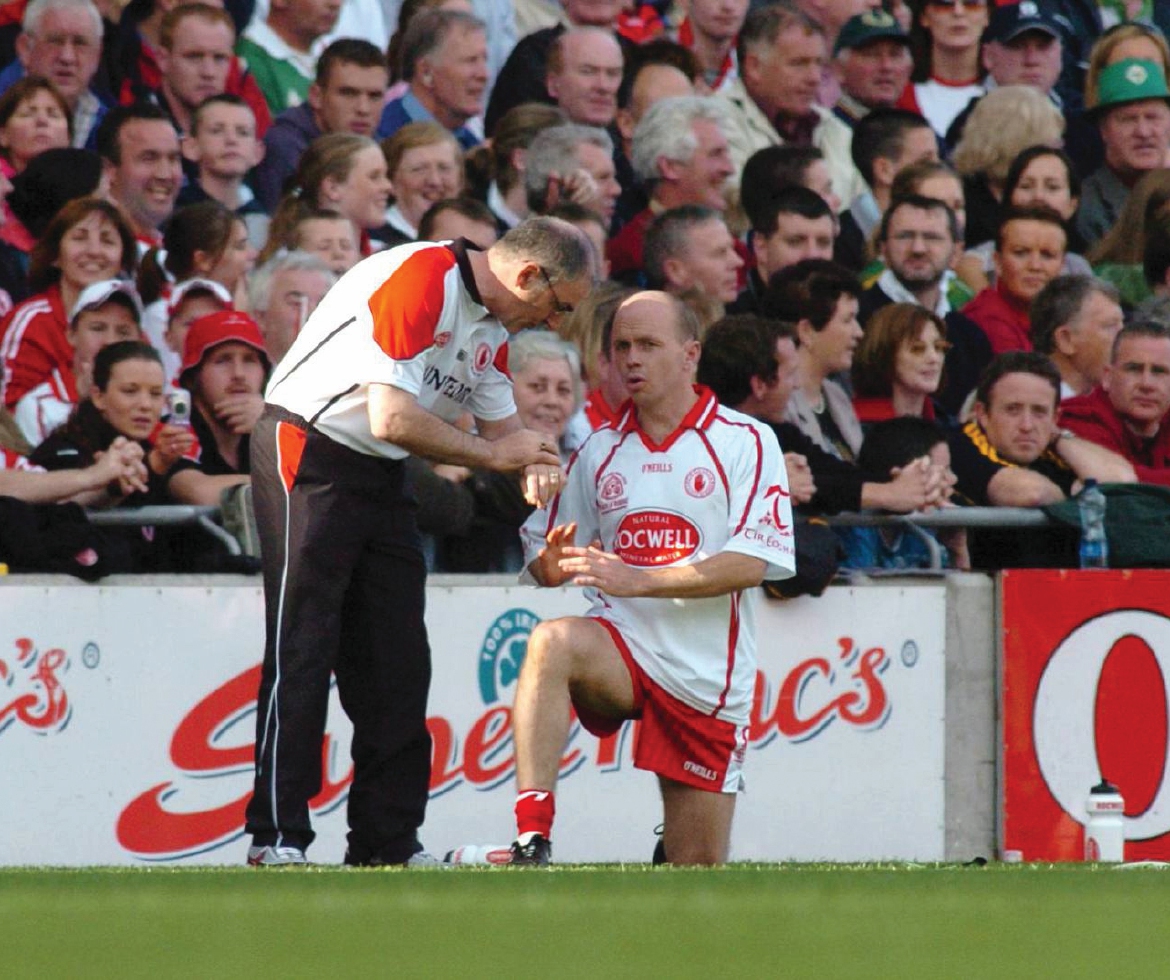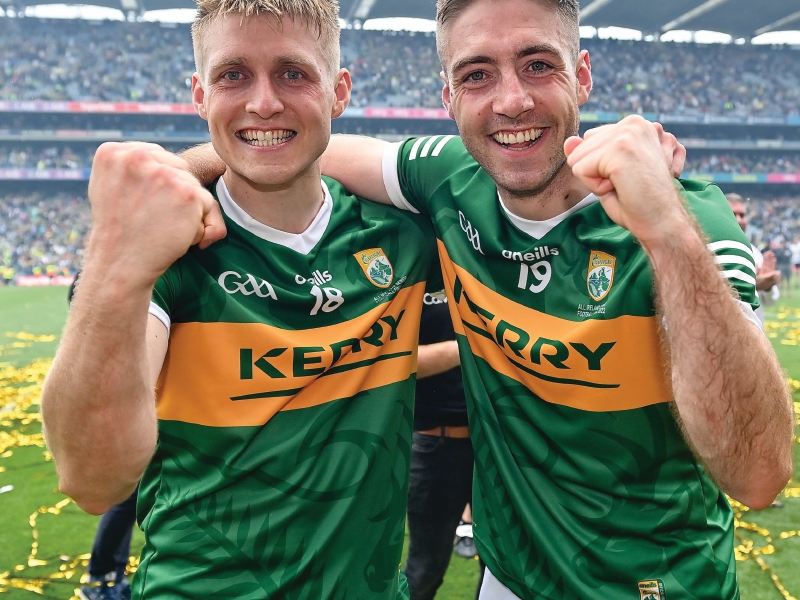A good squad is pivotal to success these days and we take a look at the best ‘super subs’ of the modern era. Shaun Casey writes…
JIM Gavin developed the mantra that the team that finishes is more important than the team that starts. You have players to get you in the game and keep you in it, but you have match winners as well. Starters and finishers.
Dublin bought into Gavin’s philosophy and the subs bench that the 1995 All-Ireland had at his disposal during those golden years was frightening and a major reason why the Dubs were so successful.
Quite often there were generational talents in the form of Bernard Brogan, Diarmuid Connolly, Paul Flynn and Michael Darragh McAuley that couldn’t get into the starting line-up. Not to mention Kevin McManamon, who made his name as a Dublin legend for being the most super of super subs.
In Gavin’s last game in charge, when Dublin defeated Kerry to complete their historic five-in-a-row, there was a list of All-Stars, All-Ireland winners and former Players of the Year to call upon. Paddy Andrews, Brogan, Connolly, Philly McMahon, McManamon, McAuley and Cian O’Sullivan all started the game on the bench.
It’s the key to being successful. It’s vital for any winning team that the squad is strong enough to battle through adversity. The panel of players must consist of more than just one or two superstars because that will only get you so far.
When the game is there to be won, that’s when the cavalry emerges from the dugout and steals the victory and quite often steals the limelight. Over the last number of years, the use of the bench has been key to the All-Ireland winners.
McManamon is probably hailed as the best ‘super-sub’ of the modern era given the torturous time he gave opposition defences, particularly Kerry, during his years in the Dublin jersey.
The 2011 All-Ireland final was a major turning point for the Dubs. Dublin looked dead and buried when McManamon popped up with that memorable goal to kickstart not only their revival but the most dominant period in their history. Cluxton’s winner doesn’t happen without the introduction of McManamon.
He did it again in the 2013 All-Ireland semi-final, when McAuley’s strong flick sent McManamon through on goal and the St Jude’s sharpshooter did the rest, crashing the ball to the net to shake off Kerry and send Dublin through to another showpiece.
On Sunday past, with the game still in the balance, when both Jack O’Connor and Pádraic Joyce looked towards their subs bench for someone to make an impact, the Kerry boss knew he held all the aces.
What Kerry had in reserve ultimately out classed Galway’s panellists and most of the pregame build up suggested that if the game was tight heading into the last ten minutes, the Kingdom would steal it due to their superior bench. And that’s exactly how it transpired.
It’s been a running theme of All-Ireland finals for decades. The best players earn a jersey numbered 1-15 but quite often the game is decided by somebody that’s coming in fresh and looking to prove a point.
It can be an experienced player who just doesn’t have the legs for 70 minutes anymore but has the quality to impact the game and lead his side to victory. Seamus Darby is probably the best example of all and his goal in the 1982 All-Ireland final that denied Kerry a famous five-in-a-row is one of the most iconic scores in GAA history.
Jack O’Connor approached this season in a different manner, however. Kerry’s 12-point Munster championship win over Cork was an evenly contested affair until O’Connor realised the subs, Paul Geaney, David Moran and Paul Murphy, who opened up the wide margin between the teams by the end of the game.
In the run up to the All-Ireland final, Geaney and Moran had been drafted into the starting 15, but neither was on the field when the final whistle sounded in the All-Ireland semi-final or the final. Everyone knew that it was highly unlikely that Moran would last the full 70 plus minutes of an action packed Croke Park encounter, but the Kerry boss perhaps felt Moran’s experience and big game knowhow was essential from the start and when he wasn’t performing well, he was whipped off, along with Geaney and in came the Spillane brothers Killian and Adrian.
Killian was the man who made the biggest difference, with his two late points helping to see Kerry over the line. Spillane’s impact wasn’t unexpected as he also rattled the net in the 2019 drawn final against Dublin after being introduced, just when it looked like the game was slipping away from the Kingdom.
Even in the semi-final, it was Paul Murphy who played the ball to David Clifford for Sean O’Shea’s free that decided the contest and knocked Dublin out. Another example of fresh legs coming in to make a crucial play.
Sunday’s All-Ireland final will best be remembered for the shootout between two greats in David Clifford and Shane Walsh but when the game was in the melting pot, it was Kerry who were in the position to give their starman the best assistance.
Last year was something similar when Feargal Logan and Brian Dooher guided Tyrone to the promised land. Two of their best forwards, Cathal McShane and Darragh Canavan, only saw game time in the last quarter of the decider against Mayo but made telling, game-winning impressions.
McShane, a 2019 All-Star recipient, got on the end of Conor Meyler’s lofty ball towards the square and punched home the goal that put the Red Hands out of reach. Canavan chipped in with a point as Tyrone ran out five-point winners.
Canavan was following in his fathers footsteps as Peter’s role as an impact sub, although a little different, were hugely influential in their 2003 and 2005 All-Ireland successes. They are now seen as outstanding tactical moves by then manager Mickey Harte and got Tyrone across the line for the first and second times in their history.
In the lead up to the 2003 all-Ulster All-Ireland final with old rivals and reigning champions Armagh, Canavan’s availability was in serious doubt as he had picked up an ankle injury in the now famous semi-final victory over Kerry.
But the captain started the final and converted five first-half frees to give the Red Hands an 8-4 advantage at half time. The Errigal Ciaran legend failed to appear for the second half and was replaced by Brian McGuigan, who had been taken off mid-way through the opening period.
Super sub Stephen O’Neill almost stole the headlines with two points after the break but it was in the final ten minutes that finally Tyrone snatched the Sam Maguire from their neighbours. In came Canavan once again to see the game out in the final few minutes and Harte’s masterstroke was complete.
Canavan became the first Tyrone man to climb the steps of the Hogan Stand and get his hands on Irish sports most prized possession. Not only was it a piece of genius from Harte, but he repeated the move two years later to similar effect.
Kerry were out for revenge following their humiliating semi-final defeat in 2003 and were the favourites heading into the 2005 decider. Again, Canavan started the game and made a huge impact in the opening half.
His goal was a thing of beauty, perfectly timing his run off Owen Mulligan’s shoulder and coolly slipping the ball into the net past the helpless Diarmuid Murphy. Like two years previous, Canavan was hauled off at the interval, only to reappear during the second half and swing over a hugely influential score.
The impact of the subs was also seen in the hurling final this year. Ritchie Hogan seemed to have pulled it out of the fire for Kilkenny when his beautiful stroke sailed over the bar and tied the game while Walter Walsh had a major impact in keeping the Cats in contention.
But Limerick had their own firepower flying off the bench and of their four replacements, two got on the scoresheet. Both Cathal O’Neill and Conor Boylan sailed over important scores in the final ten minutes as Limerick claimed a two-point win.
When it comes to winning the big games, it’s the squad depth and quality subs that make the telling contributions. They’re the match winners. Darby, Spillane, McShane, Canavan. Galway simply didn’t have anyone of that calibre that could come into the fold and affect the result. No one to take the game by the scruff of the neck and turn it in their favour.
Not every team has the power to do it and Gavin, along with O’Connor, Harte and the rest were fortunate enough to have the strength in numbers but the attitude of we before me and keeping the subs on side is key to their man-management skills and their successes.
Receive quality journalism wherever you are, on any device. Keep up to date from the comfort of your own home with a digital subscription.
Any time | Any place | Anywhere













